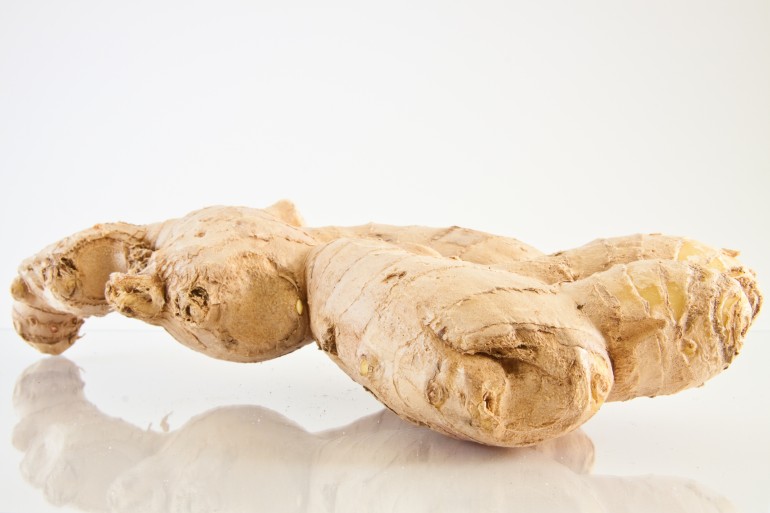
There’s no denying it…summer is over and the chilly weather is making its presence known.
It’s time to get the scarf out and throw on some extra layers, switch the cold salad for a hearty soup, and put down the (sugar-free) iced capp and pick up a warming tea.
When it comes to staying warm, one of my favourite options is ginger tea. This simple drink has been used by Eastern cultures for ages to warm the body, support healthy appetite and digestion, and manage nausea and vomiting. Newer applications for this spicy rhizome include supporting the treatment of arthritis, rheumatism, and bronchitis.
Here’s a quick and easy ginger tea recipe that will help keep you warm, happy, and healthy this fall and winter season.
Ginger Spice Tea
- 1L water
- 1/2 medium fresh ginger, grated
- 1-2 cinnamon sticks
- 2-3 cardamom cloves
- 2-3 peppercorns
- 2-3 cloves
- Lemon zest
Bring the water to a boil, then add all the spices and reduce to medium-low heat. Simmer for at least 30 minutes (the longer, the stronger). Strain into mason/glass jars, let cool, and store in the fridge. Drink one cup once or twice daily, served with a squeeze of fresh lemon and a touch of honey. Try to finish it within 2-3 days.
…I’m not one for set measurements and tried to provide the best estimate I could regarding proportions…I encourage that you play around with it and make it your own…
Precautions and Interactions:
Ginger is non-toxic, but you should speak to your naturopathic doctor if you have gallstones, are pregnant or breastfeeding, have a heart condition, bleeding disorder, or have diabetes. If you will be going in for surgery, tell your health team that you’re taking ginger. Pregnant women should avoid having more that 1g per day. Do not give ginger to children under two years old. High doses of the herb can irritate the stomach and cause heartburn.
To minimize the risk for interactions, speak to your naturopathic doctor if you’re taking blood thinners, diabetes medication, or high blood pressure medication. Though the risks are low, it’s better to play it safe.
References:
- Ehrlich, Steven D. “Ginger.” University of Maryland Medical Center. A.D.A.M., Inc., n.d. Web. 06 Oct. 2014.
- Godfrey, Anthony, and Paul Richard Saunders. Principles & Practices of Naturopathic Botanical Medicine. Toronto: Canadian College of Naturopathic Medicine, 2010.
- Hoffmann, David. Medical Herbalism: The Science and Practice of Herbal Medicine. Rochester, VT: Healing Arts, 2003.
- Pitchford, Paul. Healing with Whole Foods: Asian Traditions and Modern Nutrition. Berkeley, CA: North Atlantic, 2002.




